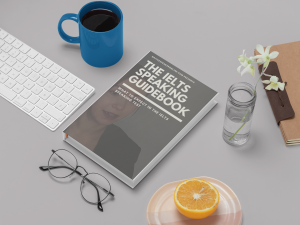In part one of the IELTS speaking test, you are asked about 12 general questions. These questions will be about yourself, for example your home town, your favourite holiday destination, what books or films you like, your family, your neighbours, etc.
It is important to use correct grammar in your answers, so listen carefully to the questions.
Use the same tense
You should pay special attention to the verb tenses that the examiner uses. Here’s an example:
The examiner uses the present simple (do you do). We use the present simple when we talk about regular, repeated activities in the present. You can begin your answer with the same tense, for example:
Well, I regularly play tennis in the summer. …
I don’t really have much spare time, but when I do, I like to …
The examiner might follow up with this question:
This time the present perfect continuous is used. We use the present perfect continuous when we talk about an activity that started in the past and continues to the present. Again, you can begin your answer with the same tense, for example:
Well, I’ve been playing tennis since I was a teenager. ….
Well, I’ve been playing tennis for about five or six years. …
Here’s another question you might hear:
Here, the present continuous is used. We use the present continuous when we talk about an activity that is taking place around the present time (but not necessarily right at this present moment). In this case, you can begin your answer with:
This tip should help you begin your answers. Of course, these are not complete answers. You should expand on them, for example:
Use a different tense
You can also begin your answers with a different tense if you are confident enough, for example:
Examiner: Do you know your next-door neighbours?
Candidate: No, I’ve never met them personally, but my wife has chatted to them on several occasions. …
In the above example, the examiner uses the present simple but the candidate begins the answer with the present perfect simple. We often use the present perfect simple to talk about our general experiences – things that we have done in the past without saying when we did them.

This FREE eBook Shows You What Kinds of Tasks and Questions to Expect in the IELTS Speaking Test.

Leave a Reply